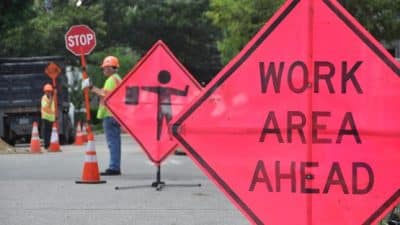
The 14th Amendment is at the heart of a case before the U.S. Supreme Court. Last week, the Supreme Court heard oral arguments related to former president Donald Trump, and his right, or not, to appear on Colorado’s ballot. Colorado disqualified Trump from the primary ballot because the state ruled the former president had engaged in an insurrection.
The court’s decision will likely have a ripple effect across the nation as other states have contemplated also disqualifying the former president for his actions on Jan. 6.
The predominantly conservative court asked questions of the legal team that seem to indicate they would likely favor Trump in the case.
At the crux of the case is whether the 14th Amendment and insurrection clause was intended to apply to a president and whether a ban could be enforced without a law from Congress.
At the hearing, the justices spent very little time on the actions of the president leading up to and during the Jan. 6 attack on the U.S. Capitol. Instead, the justices focused on the fine print of the Constitution.
Conservative Justice Brett Kavanaugh said the impact of disqualifying Trump could result in “disenfranchising voters to a significant degree.”
Joe Biden nominee and Justice Ketanji Brown Jackson said during the hearing that the provision did not include the word “president” even though it lists other officials including members of Congress.
The U.S. Supreme Court often takes months to hand down an opinion – usually at the end of its term in June. However, due to the implications of this case, it is likely the court will make a decision in a matter of days or weeks.
Debating the 14th Amendment
On Tuesday, a discussion was held between a retired federal judge and a Constitutional law professor on whether the 14th Amendment applies to a presidential candidate.
Section Three of the 14th Amendment reads: “No person shall be a Senator or Representative in Congress, or elector of President and Vice President, or hold any office, civil and military, under the United States or under any State, who, having previously taken an oath, as a member of Congress, or as an officer of the United States, or as a member of any State legislature, or as an executive or judicial officer of any State, to support the Constitution of the United States, shall have engaged in insurrection or rebellion against the same, or given aid or comfort to the enemies thereof. But Congress may by a vote of two-thirds of each House, remove such disability.”
“The 14th Amendment: When Should a Presidential Candidate Be Disqualified?” event at The Rotunda was presented by the University of Virginia Karsh Institute of Democracy and UVA Law.
University of Richmond Law Professor Kurt Lash said he believes the Colorado Supreme Court’s decision should be reversed because the language is ambiguous. Lash submitted a brief to the Supreme Court arguing that a civil office was referring to appointed offices and not government positions including president of the United States.
An early draft of Section Three, Lash said, named the president in its opening words; the final draft did not.
“It is textually possible to read that phrase as including the office of the president,” Lash said. “But it is not necessary to read it that way. The text was ambiguous.”
Retired federal judge J. Michael Luttig disagreed with Lash’s take that the president is not subject to the 14th Amendment. He said he has concluded that the president is “emphatically disqualified” because he (Trump) engaged in an insurrection against the U.S. Constitution.
“If the Supreme Court of the United States rules that the former President is not disqualified by the 14th Amendment, and it doesn’t embrace some legitimate off ramp to the contrary opinion, I believe it will do a blow to the Constitution of the United States and the rule of law in America.”
Luttig said the legitimate off-ramps could include that the former president is not disqualified today.
“I do not believe that there is an off ramp eventually to a conclusion that the former president is disqualified under section three of the 14th Amendment.”
Luttig points out that the article does not disqualify a person who engages in rebellion against the United States; it disqualifies anyone who engages in insurrection against the Constitution.
“For the first time in American history, he (Trump as president) has engaged in an insurrection against the Constitution, the executive vesting clause and the 12th and 20th Amendments,” Luttig said. “There is one single circumstance in which a president can never be immune from federal prosecution. It’s when he leads an insurrection against the Constitution of the United States … and if that person is immune from federal prosecution, then a president is immune from all prosecution for any and every criminal act committed against the United States of America while he or she was in office.”
Lash agreed that Luttig has a good argument but said that insurrection or rebellion had a much larger meaning that what happened on Jan. 6. Lash said it was meant for something “far more insidious and far more catastrophic … something along the lines of a Civil War that had resulted in the deaths of 600,000 American soldiers and led to extraordinary death and destruction … I mean, the Civil War and insurrection or rebellion that they were dealing with was on a level of death and destruction unheard of in American history.”
Luttig believes that the Supreme Court may look at the matter in the narrowest way possible here: Do states have the prerogative to disqualify a former president or not?
Luttig said that by ruling on this alone, chaos could be avoided, and individually states could determine whether or not to disqualify Trump.
“Trump v. Anderson is a test of America’s commitment to American democracy, to the Constitution and to the rule of law,” said Luttig. “America must not fail this test. And it goes without saying the Supreme Court of the United States must not fail this test.”










